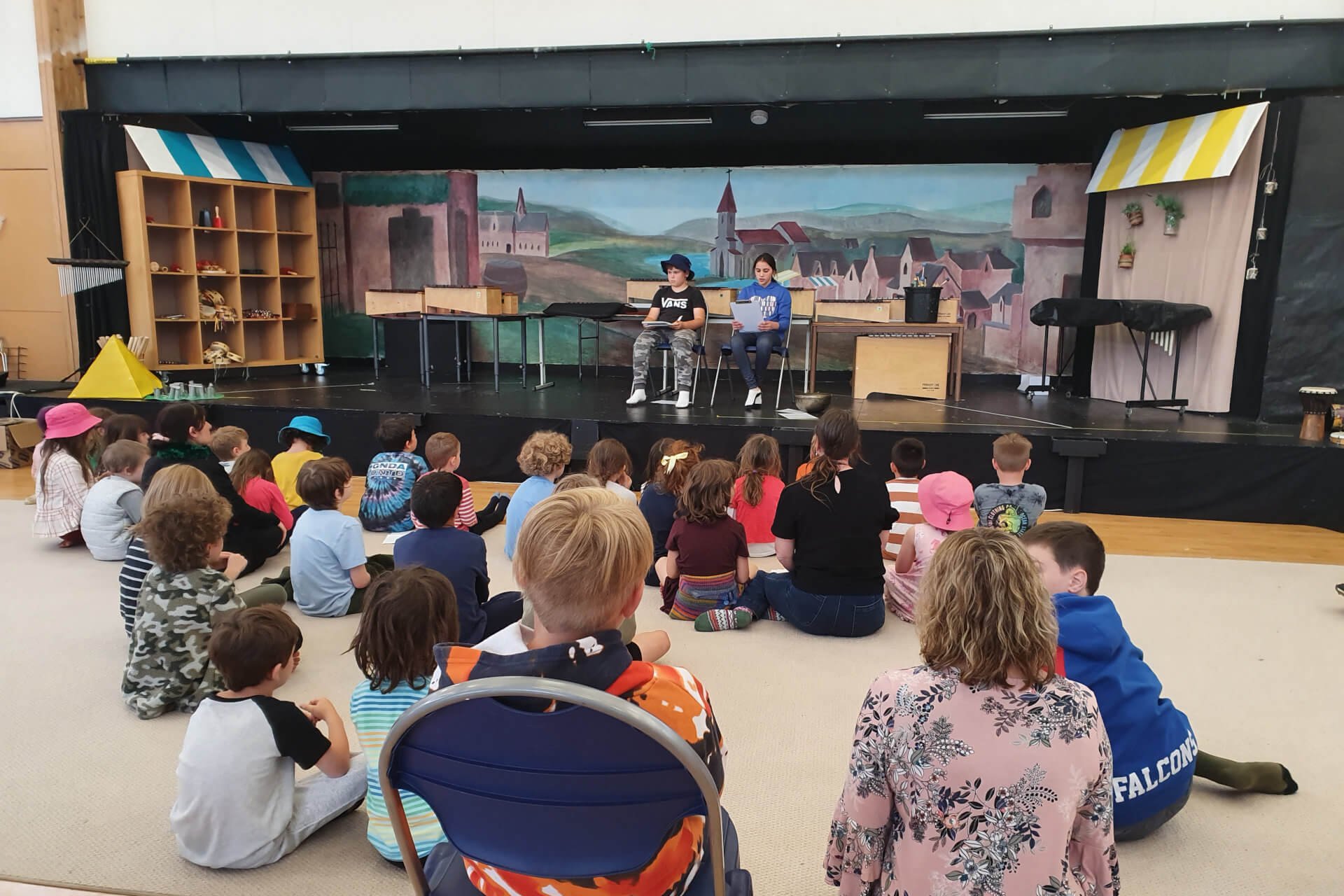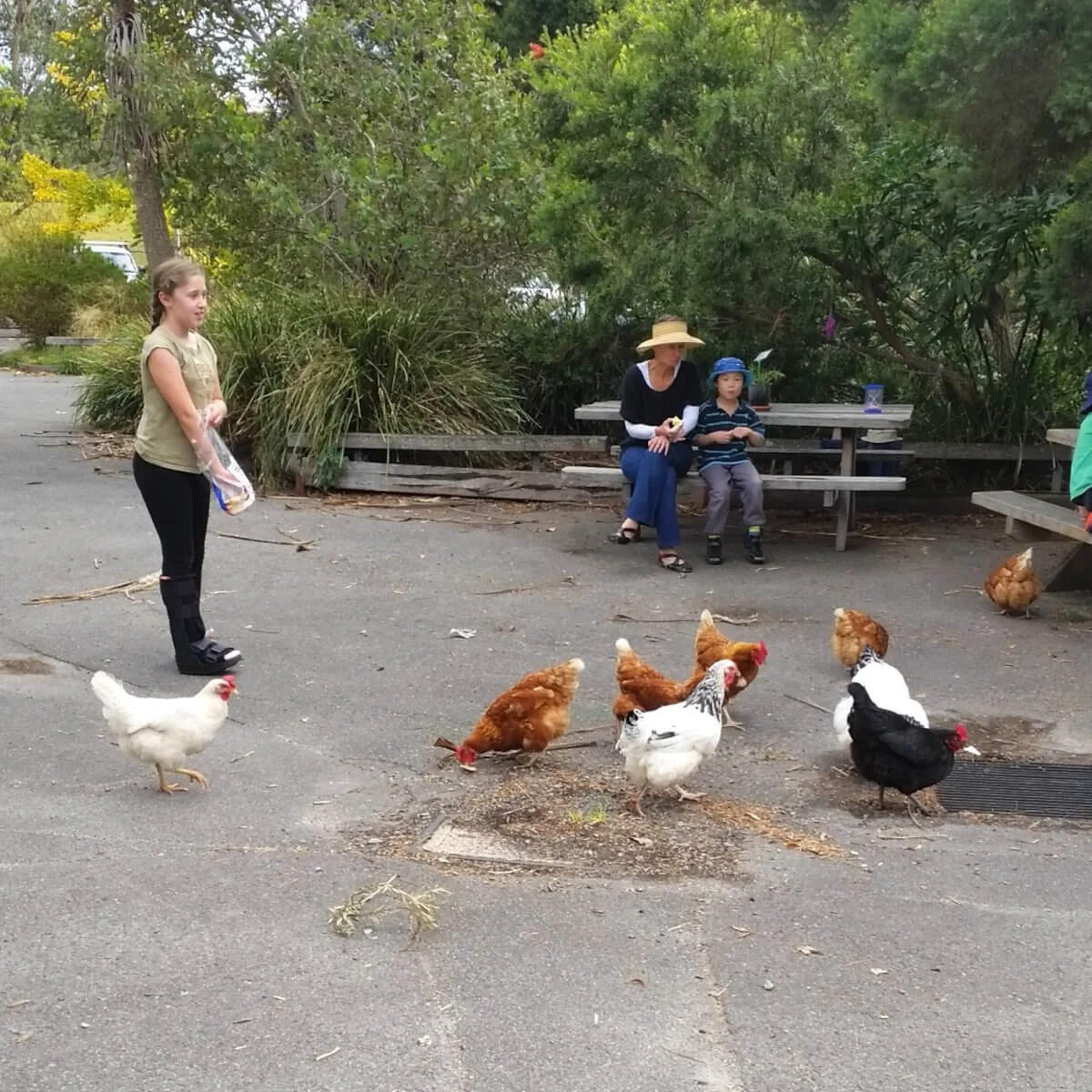
Democratic School
Students are given an equal voice in decision making.
Children at Village School have a voice, are heard, and take responsibility alongside teachers for making decisions and running the school. Students are actively encouraged to speak up and share their perspectives, ask questions and make suggestions.
What is a democratic school?
A democratic school gives students an equal voice with teachers and parents on the content of their education and how their school operates. In other words, when decisions are made, everyone’s vote has the same weight, regardless of age, experience, maturity or role.
Democratic schools are not lawless, chaotic environments, as some might think, but structured, organised schools with clear rules that have been defined and agreed to by all. The heart of the democratic school method is the democratic meeting, where issues are raised, and solutions are found and agreed upon democratically.
The nature of democratic schools may evolve based on the current needs of the school community but always returns to their core function of empowering students to take control of their education. Democratic schools serve to provide students with ample opportunities to practice decision-making and self-directed learning in a safe environment.
How we apply democratic principles
At Village School, we use many elements of the democratic approach to give our students a voice in the decision-making process and to teach values and skills essential for success as a member of society. We actively engage students in the design and management of their learning process and adapt our curriculum to accommodate each student’s interests and abilities.
How we apply democratic principles
At Village School, we use many elements of the democratic approach to give our students a voice in the decision-making process and to teach values and skills essential for success as a member of society. We actively engage students in the design and management of their learning process and adapt our curriculum to accommodate each student’s interests and abilities.
-
Each home group (class) holds a daily meeting to discuss events and experiences and raise issues that are affecting the classroom, agree on solutions and create or update rules. This may include:
Clarifying daily procedures
Resolving social issues
Discussing current affairs
Highs and lows of the week
Upcoming class activities and events
Showing recently completed work
These meetings are a great opportunity for children to gain practice in running effective meetings. Students take turns in the roles of chairperson, minute-taker and timekeeper. Every child in the group experiences what it is to be able to ‘stand up and be counted’ in their own individual way without fear of being ridiculed for doing so. Over time students gain confidence in their ability to speak up and be heard and take great pride in these opportunities to take on responsibility and shine.
-
Each week, there is also a whole school meeting, which is attended by the entire school.
These meetings are an extension of the classroom meetings, where issues are discussed and achievements are shared, and help students from all year levels understand and practice meeting procedures. Students from Year 6 run the meeting and are supported by their classroom teacher outside of meetings to become effective leaders of the meetings. It also reinforces the empowerment of students, who actively participate in resolving issues affecting the whole school community.
Meetings include standard elements such as a welcome to country, a brief meditation, and record keeping, including a rule book that has been expanding and adapting for more than 10 years.
Items that may be discussed at meetings include:
Cubbies and their management
Animal duties e.g. a better what to do something
Games e.g. whole school tiggy
Upcoming events e.g. school photos, concerts
Fundraising, whole school projects
Teachers take turns along with students to raise topics and provide suggestions. Students often also have the opportunity to present and talk about work they’ve completed recently in the course of their classroom learning.
-
We focus on individual learning by setting open-ended tasks which can be tackled at some level by any age group.
Project-based learning where the children choose their own topics is one way to achieve this. Another is to set tasks that can have many outcomes.
-
Issues are best resolved by involving the children. Initially, children are encouraged to talk their problems through with each other, or perhaps get a big friend to listen and then help them decide on the outcome.
More formal issue resolving involves each chatting to a mediator (teacher, learning support or older student) on their own and then working together with a mediator to determine a positive outcome, with consequences if necessary.
There are some instances where one of the children may feel too intimidated to follow this process and in these situations, adult intervention is required.
-
Apart from safety issues such as wearing shoes, a hat in summer and a raincoat in winter, most rules come from discussions with the children, usually during their whole school meetings.
These rules can be very fluid, particularly with the rules about cubby building, which constantly come up for discussion and review. Most rules are decided by a vote and are often up for negotiation.
-
Children are encouraged to follow their passions with regard to causes, and they frequently create stalls etc to raise money for a good cause.
-
Being a small school facilitates a lot more cross-age socialising. Often the older children initialise a whole school game of “Tiggy” or “Capture the Flag”
-
Hiring new teachers is a protracted affair. Everyone is involved in this process and applicants spend at least half a day teaching one of the groups. The children’s feedback along with the staff's feedback form part of the selection process.




